SURVIVING IN AN EVOLVING WORLD
One factor that will largely determine whether education will lift Africa or push it further into the abyss of poverty is the type of education its governments offer their teeming adolescents and youth. Is it appropriately positioned to spur or catalyze development? With many countries in Africa experiencing high unemployment rates and equally high underemployment levels, there will need to be a major turnaround in these areas for African countries to have a fighting chance of rising. Curricula at both secondary and tertiary level need to be extensively re-engineered to reflect the needs of an evolving world and global village. The African educational system needs to produce citizens equipped with an entrepreneurial spirit; individuals ingrained with the know-how to create valuable employment as well as individuals burnished with the right knowledge and relevant skills to obtain gainful employment and guarantee a secure future.
In August 2022, Uhuru Kenyatta, the then outgoing President of Kenya proudly announced that Kenya had included coding as a subject in its primary and secondary school curricula, making it the first African country to do so. In the course of his speech he said, “this, no doubt, will enhance employment creation, enable and scale up ICT innovation and the development of a dynamic and robust ICT sector that will enhance the growth of all sectors of our economy. The master plan also guides investors while planning their investment priorities.” According to a report in TechCabal, one of the targets of the country’s well-crafted digital master plan is to set up over 20,000 village digital hubs across Kenya and the projection is that this, “will enable the government to employ an additional 40,000 youth directly to run the centers and train interested citizens.” Such visionary leadership deserves to be applauded. Kenya is a country with a relatively low unemployment rate, put at 6.6% in 2021 going by data published by the International Labour Organization. In contrast, Nigeria, the most populous country in Africa holds the unenviable record of having one of the highest unemployment rates in the world (put at 33% according to Statista) and there is no country in the world that can rise, thrive or even survive in any meaningful way with such adverse numbers.
INNOVATIVE AFRICAN YOUTH
According Hicham El Habti, President, Mohammed VI Polytechnic University, OCP Group in his September 2022 article published by the World Economic Forum, “Why Africa’s Youth Hold the Key to Its Development Potential”,
“More than 60% of Africa’s population is under the age of 25” and “by 2030, young Africans are expected to constitute 42% of global youth.”
It could be said that in spite of the lack of good governance (as opposed to because of it) which often fails to provide the ideal enabling environment for commerce and industry to thrive, Africa’s youth have consistently demonstrated exceptional ability and resourcefulness to create immense value.
As El Habti correctly observed, “African youths are increasingly taking an active role in shaping their future.” He further remarked that, “In Accra, Nairobi, Cairo or Benguerir, fully fledged start-up scenes are disrupting how we think about African agriculture, industry, IT and sustainability. In the majority of cases, these businesses are spearheaded by Africans under the age of 35.” He went further to say that, “In fact, 2021 was a record-breaking year for Africa’s start-up scene, which secured over $2 billion in funding.” Nigeria’s startups received the bulk of this. This is not a small feat by any means.
During a virtual side event aligned with the Eighth Tokyo International Conference on African Development (TICAD8) in September 2022, Dr. Akinwunmi A. Adesina, the highly respected President of the African Development Bank revealed that the Bank was preparing to launch the African Education, Science, Technology and Innovation Fund. In his own words, “the fund will serve as a continental co-financing facility to help African countries build innovation-led and knowledge-based economies.” As the rest of the world moves in this direction with its education agenda, Africa cannot afford to be left behind. Dr. Beth Dunford, the Bank’s Vice President for Agriculture, Human and Social Development further corroborated this viewpoint by insisting that, “in a world that is increasingly becoming a global village, thanks to technological revolution, educational institutions really have to prepare students adequately for full-time employment.”
OTHER FACTORS
However, it is important to note that modernizing the curriculum and making it more relevant on its own will not be enough to transform the educational sector because the most crucial element required to make it work is to successfully secure the buy-in of the major stakeholders and adequately motivating them to make the agenda work. This is particularly true in Nigeria, where teacher morale is abysmally low. In comparison, in Finland, a country that has consistently topped the global index on education, teachers and lecturers are not only adequately remunerated but great prestige is attached to their profession. In part because the criteria that must be met to qualify as a teacher is so rigorous that only those whose calling it is to teach, would subject themselves to such a demanding process. Nigeria on the other hand runs a system of qualification which will never cease to baffle. The Joint Admissions and Matriculation Board (JAMB) marks required to pursue a degree in Education is lower than that of the regular degree, so what happens? A large percentage of those who undertake degrees in Education are those who missed the mark for a regular degree. And those are the people on whom the government saddles the responsibility of educating the country’s future leaders. It is difficult to imagine anything that better captures the term, anomaly.
COLLABORATION AGENDA
Finland has over the years been placing greater emphasis on collaboration and deemphasizing competition in its education system. This has led to the practice of co- teaching where teachers work in teams, sharing knowledge, supporting each other, producing material together and at times even sharing burdensome workloads. This collaborative practice has helped many teachers to thrive. The pupils are not left out as the spirit of collaboration with classmates is very deliberately cultivated to displace that of competition. This has given rise to VerDi, a peer learning approach to teaching, where pupils and students are handed the responsibility of passing digital skills on to peers rather than by the teachers.
It is said that there is no better way to deepen one’s knowledge than by teaching. And this brings us to a remark which the irrepressible former President of Nigeria, Olusegun Obasanjo was reported to have made a few months ago which all Nigerians, who genuinely seek the country’s progress should take note of. He pointed out that Nigeria has so far failed to graduate from merely being a country into becoming a nation. As captured in the Vanguard Newspaper, the former President said: “One of the things we need to achieve is nation-building. We have not built a nation yet. We have a country but we need to build it into a nation”. He went further to say: “We can’t make it unless we have equity and equality, and everybody has a stake in the project called Nigeria.” Love him or loathe him, there is one thing that nobody can take away from Obasanjo; he says it as it is. He possesses an uncanny ability to speak the mind of many Nigerians, both that of the ordinary man who has no voice and that of the elite who has a conscience but lacks the courage to speak. Collaboration, more than competition, produces unity and the sense of oneness required to have a shared vision. And a shared vision, one of the surest predictors of success, is absolutely indispensable for a society that wishes to rise.
It may be useful to mention at this point that it was when the government of Rwanda under President Paul Kagame made it an offense for its citizens to verbally identify with their tribe before their country, that they began their sure journey to nationhood. Within two and a half decades of emerging from a most gruesome civil war which pitted tribe against tribe, Rwanda announced its arrival as one of the continent’s rising stars.
Has this collaborative approach to education fared Finland well?
Well, it may interest you to know that this small Scandinavian country of 5.5m ranks fourth out of 167 countries in the Legatum Prosperity Index of 2022. This index goes beyond measuring wealth only but also measures the wellbeing of its citizens as well as opportunities available to them. Collaboration works.
ADEQUATE FUNDING
If Nigeria’s federal government can pay education the attention it deserves and strives harder to meet up with the UNESCO recommendation of allocating 26% of its national budget to the educational sector instead of a paltry 7.9% that it allocated in the 2022 budget, perhaps it would not find itself at the bottom of the global poverty index where it currently sits. It is not hard to fathom why African countries that allocate a greater part of their national budget to education such as Kenya which is estimated to have allocated 17.58% of its budget, and Tunisia, 20%, fare so much better on the various socio-economic indexes and are more prosperous societies. The tiny African Island state, Seychelles, is the only country reported to have fully met the United Nations Educational, Scientific and Cultural Organization’s (UNESCO)’s “education for all” target.
WILL AFRICA RISE OR FALL?
Before attempting to give a definitive answer to the above question – will Africa rise or fall on education – Africans must as a people first agree on what education should mean. It needs to be accepted that education is a holistic exercise which aims to develop the whole man; his intellect, his moral character, his competencies, his skills, and his world view to name just a few. It is necessary one understands that the purpose of education goes beyond just ingesting and regurgitating information or formulas but it should increase the learner’s capacity for creative thinking and critical analysis. This is how a society can identify and nurture solution providers who will solve the multitude of challenges that every society inevitably faces, no matter how developed or underdeveloped that society is. It is through education that individuals who will make useful contributions to a nation’s political, technological and economic growth will emerge. This is perhaps why Lee Kuan Yew, the iconic father of modern Singapore said in his book, From Third World to First: “The more talented people I had as Ministers, administrators and professionals, the more effective my policies were and the better the results.” A wise man once said, “what you own, you treat better.” So, above all, there must be equal opportunity for all Africans to receive quality education, as this is key to ensuring citizens have a sense of ownership in the project called Africa. Without this, “Africa rising” shall remain a pipe dream but with it, it can one day rule the world.


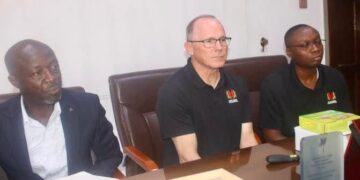



























































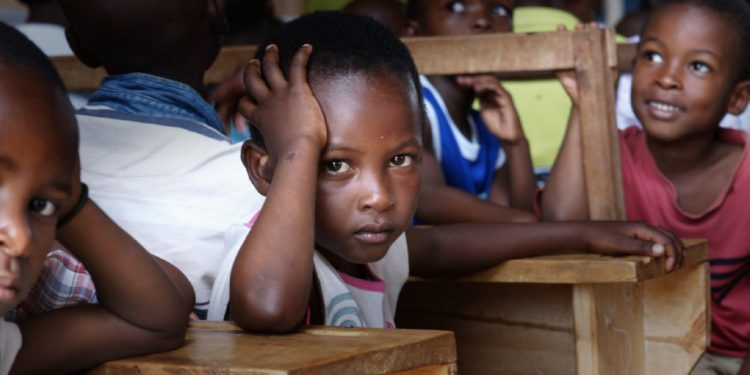




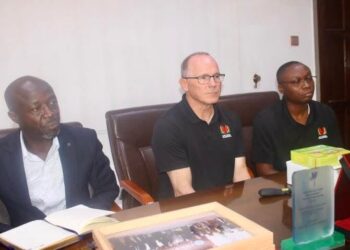
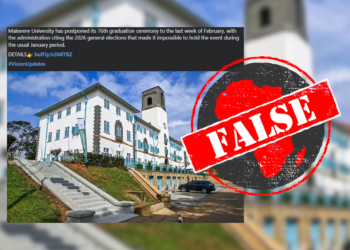

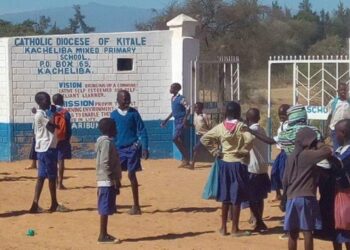
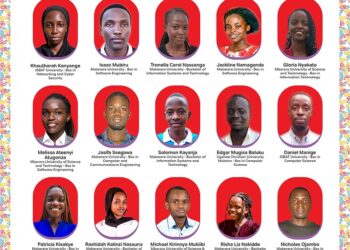










 EduTimes Africa, a product of Education Times Africa, is a magazine publication that aims to lend its support to close the yawning gap in Africa's educational development.
EduTimes Africa, a product of Education Times Africa, is a magazine publication that aims to lend its support to close the yawning gap in Africa's educational development.